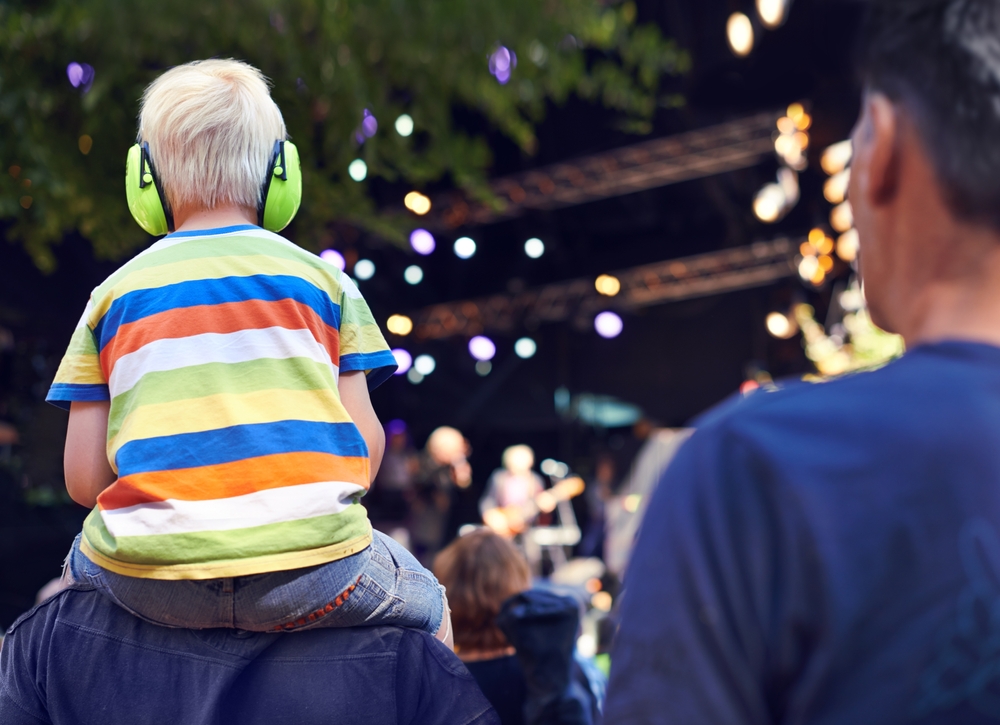
Most people think that as they age hearing loss will be inescapable. In reality, damage from repeated exposure to loud noise is also a major factor. Permanent hearing loss accumulates with each exposure to noises like lawnmowers, overly loud earbuds, and concerts. Perilously, this problem isn’t confined to older adults; even children are now showing signs of preventable hearing loss.
Worldwide, about 34 million children experience hearing loss, and a stunning 60% of these cases could have been prevented. When we consider adults, the numbers are even more dramatic, revealing a prevalent problem that demands attention.
Understanding current factors contributing to hearing loss
To deal with the issue of hearing loss, it’s important to understand why it has become so widespread in today’s world. All of the different factors that are contributing to hearing damage work together in an interrelated way that increases the risks:
- Social Environments: There’s often an excessive amount of noise in current social settings like restaurants and bars. The misconception that a loud atmosphere equals success has led many businesses to increase their volume levels. Even without live music, the background noise in these establishments can be hazardous, leading to cumulative hearing damage.
- Urbanization and Population Density: The population of the world’s cities is denser than ever before. Along with that denser population comes a louder environment. This elevated urban noise, from traffic to construction, has a huge impact on the rising incidence of hearing loss.
- Technological Advancements: The extensive use of earphones and earbuds is possibly the most significant factor in the increase of hearing loss. Earbuds and headphones have made it more convenient than ever to listen to music, podcasts, and videos. But regrettably, the tendency to crank up the volume, in conjunction with the closeness of the device to your ears can cause increasing damage to your ears. This sort of damage builds-up slowly often going unnoticed until it starts to become noticeable and permanent.
From raging waterfalls to clattering steam engines, humans have always had to cope with loud noises, but in the modern world, new challenges have arisen. The prevalence of modern technology accompanied by current levels of noise has made hearing loss much more common.
What are some practical steps to prevent hearing loss?
Given that most hearing loss cases are avoidable, particularly in children, it’s perplexing that the issue remains so common. Awareness and personal responsibility are the keys to prevention. maintain optimal hearing with the following strategies:
- Utilize Ear Protection: It’s important that you use ear protection if you’re going to be exposed to loud noises like a lawnmower or a rock concert. The danger of hearing loss will be significantly reduced by using earmuffs or earplugs which are affordable and readily available. This basic step is often neglected but can make a significant difference in preserving your hearing.
- Be Careful About Moderate Noise Exposure: While the clear-cut hazard to hearing is exposure to loud noise, moderate noise can also be a threat if you are exposed to it over long time periods. City noise, for example, may not seem harmful in small amounts, but over prolonged periods, it can contribute to hearing loss. You’re only likely to take preventive measures if you recognize the cumulative nature of hearing loss.
- Leverage Technology to Protect Your Hearing: You can monitor whether your environment is getting too noisy by downloading an app that tracks external volume. Using these tools can help you be more tuned in to your environment and hearing dangers it may pose.
- Monitor Your Earbud Volume: Personal audio devices, including earbuds, are a convenient way to listen to music and other audio content, but they present a significant risk if used irresponsibly. If your device has a noise limit setting, you can use it to protect your ears from harmful sound levels. Taking the time to adjust these settings can prevent long-term damage to your hearing.
The power of knowledge in hearing protection
It’s more challenging for someone to protect their hearing when they work in a loud setting like a stadium or a manufacturing plant. But the health of worker’s hearing is being protected by safety regulations that can be somewhat rigorous. Work-associated hearing loss can be prevented by becoming familiar with these regulations and putting them into practice.
You will ultimately be better able to protect your hearing by being more informed. Your knowledge base should include knowing your environment, workplace policies, and willingness to seek advice from a hearing specialist if needed.
We can give you individualized recommendations about how to better protect your hearing and also help you get a better understanding of your present level of hearing health. Keep in mind that hearing loss doesn’t have to be an inevitable outcome. With the right precautions and awareness, you can maintain your hearing health and enjoy the sounds of life for years to come.
